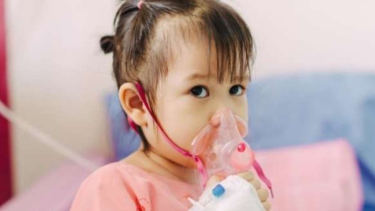Pneumonia is Leading Cause of Death in Children, Toddlers
- Siloam Hospitals
Jakarta – Pneumonia is an acute respiratory infection that affects the lungs. Alveoli, small pockets in healthy lungs contain air when a person breathes.
However, when someone has pneumonia, the alveoli will fill up with pus and fluid, which causes pain when breathing and reduces oxygen intake, as reported by the World Health Organization (WHO).
However, there are factors or causes of pneumonia that can be experienced by children, one of which is germs.
Germs can be found anywhere in dirty places or objects, this can make children experience pneumonia due to the presence of viruses, bacteria and fungi attached.
Orang Tua Harus Waspada! Penyakit Pneumonia Jadi Penyebab Terbesar Kematian Pada
- Dinas Kesehatan Kota Yogyakarta
Pneumonia can spread in many ways. If inhaled, viruses and bacteria commonly found in the nose or throat can infect a child's lungs.
In addition, pneumonia can spread through airborne droplets generated from coughing or sneezing. Pneumonia can also spread through blood, especially during birth and after birth.
Parents should also be alert if shortness of breath or pneumonia occurs in children. The cause of a child having pneumonia is if the child has a cough for 3 days to 5 days.
Another sign that a child has pneumonia is rapid breathing and inward chest wall pulling, if there is shortness of breath there is a depression in the lower chest wall.
Knowing more about pneumonia, it turns out that this shortness of breath disease is often the cause of death of infants and toddlers.
Dr. Rina Triasih as the Chairperson of the IDAI Respirology Coordination Unit (UKK) showed data from IDAI, that the highest mortality in children is caused by pneumonia and diarrhea.
"Many patients are treated for pneumonia. Until now, pneumonia is the most common cause of death in infants or toddlers. Data from IDA, the highest deaths are due to pneumonia and diarrhea," Triasih explained.
Based on data at the global level, every year 1.3 million children die from pneumonia and every 39 seconds there will be one child who dies from this disease.
According to WHO, stopping childhood pneumonia is an important part of efforts to reduce child mortality. The most effective way to prevent pneumonia is by immunizing against pneumococcus, measles, Hib, and whooping cough, also known as pertussis.
Starting with exclusive breastfeeding in the first six months of life, adequate nutrition is essential to boost a child's natural defenses.
This is not only effective in preventing pneumonia, but also helps reduce the duration of illness if the child falls ill.
Meanwhile, addressing environmental issues such as air pollution and encouraging good hygiene in the neighborhood also helps reduce the number of children affected by pneumonia.

































